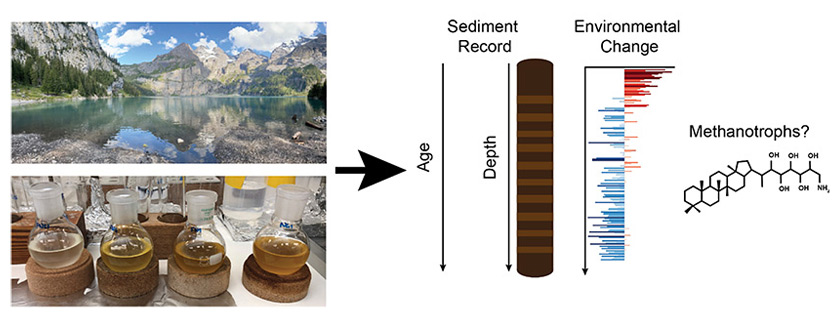Department Surface Waters - Research and Management
Identifying new biomarkers for methanotrophs

Methane is a potent greenhouse gas that is naturally produced in lakes through the degradation of organic matter. How much methane ultimately gets released into the atmosphere from lakes, however, is regulated by a process known as methane-oxidation that is performed by aerobic methanotrophs, i.e., methane-oxidizing bacteria.
This project aims to understand how methanotrophs respond to changes in the environment. We will do this by identifying lipid biomarkers that are produced by methanotrophs and can be preserved in geologic records, such as lake sediments, as molecular fossils.
Using an interdisciplinary approach, we will study how methanotroph communities and their lipid distributions respond to environmental stress (e.g., changes in oxygen conditions or temperature). In addition, we will track seasonal changes in methanotroph communities and their corresponding lipids in a Swiss lake. We will compare this with surface sediments from 20 other Swiss lakes and several global lakes to test how widely applicable our lipid biomarkers are. We will then apply these new lipid biomarkers to lake sediment records to study past changes in methanotroph communities. Ultimately, this will provide us with a new method for understanding how aerobic methanotrophs have responded to changing environmental conditions in lakes over time.
Collaboration
Cindy de Jonge (ETH)
Nathalie Dubois (Eawag & ETH)
Carsten Schubert (Eawag)
Helmut Bürgmann (Eawag)
Funding
Ambizione Swiss National Science Foundation


